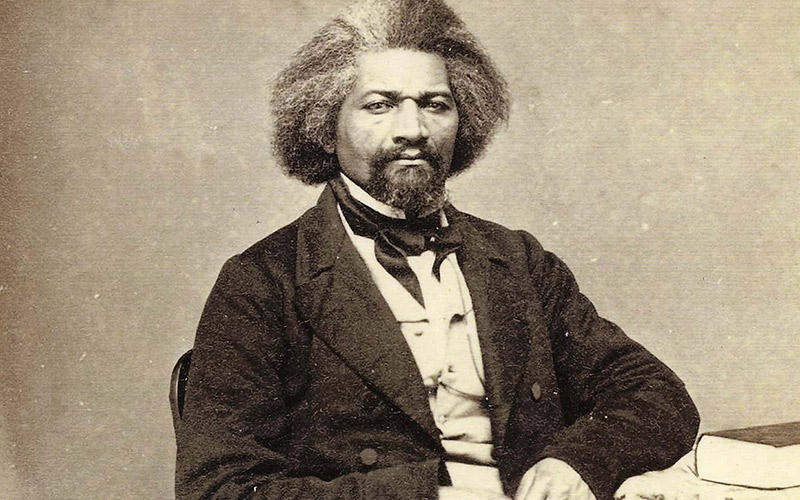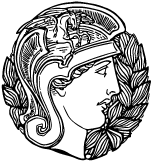
Born into an era fraught with moral and political turbulence, Frederick Douglass is remarkable not simply for his powerful account of escaping the bondage into which he was born, but for the clarity and independence of his thought and the power of his expression.
We will be introduced to the breadth of Douglass’s creative output: his autobiographies, his journalism, and the speeches which catapulted him to fame as one of America’s foremost orators. We will consider how Douglass shapes the account of his own life, his diagnosis of America’s promise and its blighted history, and in particular how he uses words to persuade and build up a powerful indictment of injustice and inequality.
Our conversations, while taking both U.S. history and Douglass’s biography into account, will focus primarily a careful consideration of the texts we read each month—beginning with Douglass’s Narrative and early speeches and continuing through his journalism and commentary on abolitionism, the Civil War, Reconstruction, and Jim Crow.
This group meets on the third Wednesdays of each month from September 2020 to May 2021, 7-8:30pm. Meetings will take place on Zoom until further notice.
The majority of our selections will be taken from one of two books: The Portable Frederick Douglass (Penguin Classics, 2016, ed. John Stauffer and Henry Louis Gates) and My Bondage and My Freedom (Penguin Classics, 2003). We will also read approximately 8 selections from The Essential Douglass (Hackett, 2016, ed. Nicholas Buccola). While some of these selections are readily available online, I would recommend buying this title as well in spite of its overlap with Portable.
Detailed Schedule of Readings
(PD = Portable Douglass, ED = Essential Douglass)
Wed, September 16 | The Origin Story of Frederick Douglass
Narrative of the Life of Frederick Douglass (PD 3-101)
Wed, October 21 | Race in Douglass’s America
“The Claims of the Negro Ethnographically Considered” (PD 223-47), “The Significance of Emancipation in the West Indies” (PD 248-68), “Prejudice against Color” (PD 421-25), “The Word ‘White’” (PD 427-428), “The Color Line” (PD 501-12)
Wed, November 18 | Douglass and the Founding
“The Constitution and Slavery” (ED 37-42), “Change of Opinion Announced” (ED 42-43), “What to the Slave Is the Fourth of July” (PD 195-222), “Is Civil Government Right?” (ED 45-49)
Wed, December 16 | Virtue in Douglass’s Thought
The Heroic Slave (PD 153-194), “The Trials and Triumphs of Self-Made Men” (PD 292-302 / ED 332-349)* n.b. very different versions of the speech
Wed, January 20 | An Origin Story, Revisited
My Bondage and My Freedom
Wed, February 17 | Douglass on Violence and Abolition
“What Is My Duty as an Anti-Slave Voter?” (ED 108-112), “Is It Right and Wise to Kill a Kidnapper?” (PD 429-34), “Capt. John Brown Not Insane” (PD 445-47), “To the Rochester Democrat and American” (PD 448-51), “The Proclamation and a Negro Army” (PD 306-25) “Men of Color to Arms!” (PD 484-86), “Valedictory” (PD 487-90) “Why Should a Colored Man Enlist?” (ED 187-190)
Wed, March 24 | Secession and Civil War [DATE CHANGED FROM MARCH 17] “The Dred Scott Decision” (PD 248-68), “Fremont and His Proclamation” (PD 476-78), “The Doom of Black Power” (PD 441-45) “The Mission of the War” (PD 326-44), “The Fall of Sumter” (PD 472-475) “The Dissolution of the American Union” (ED 141-145), “Substance of a Lecture [on Secession and the Civil War]” (ED 157-163), “The Slaveholders’ Rebellion” (ED 164-179)
Wed, April 21 | Douglass and Lincoln
“The Chicago Nominations” (PD 452-55), “The Inaugural Address” (PD 456-57), “The New President” (ED 146-147), “The President and His Speeches” (PD 479-83), “Our Martyred President” (PD 361-363), “The Freedman’s Monument to Abraham Lincoln” (PD 364-376)
Wed, May 19 | Reconstruction, Jim Crow, and the Future
“Women’s Suffrage Movement” (PD 491-94), “Give Us the Freedom Intended for Us” (PD 498-500), “Lessons of the Hour” (PD 377-410), “The Future of the Colored Race” (PD 513-16), “Introduction to The Reason Why the Colored American Is Not in the World’s Columbian Exposition” (PD 517-26), “Our Composite Nationality” (ED 216-231), “The Nation’s Problem” (ED 314-331), “Pictures and Progress” (PD 345-360)
Iain Bernhoft is a Visiting Assistant Professor at Providence College, where he teaches English and Humanities courses. He holds a PhD in American Literature from Boston University, and his writing has appeared in Modern Fiction Studies, the Cormac McCarthy Journal, Commonweal, and elsewhere. Iain lives on the East Side of Providence with his wife and two young sons. They first became acquainted with the joys of the Athenæum not as scholars but as connoisseurs of its splendid collection of children’s books.
This group is nearing completion. Fall 2021/Spring 2022 reading groups will be announced this summer, and registration will open in July/August. Participation is reserved for Athenæum members. If you have any questions, please email readinggroups@provath.org.



